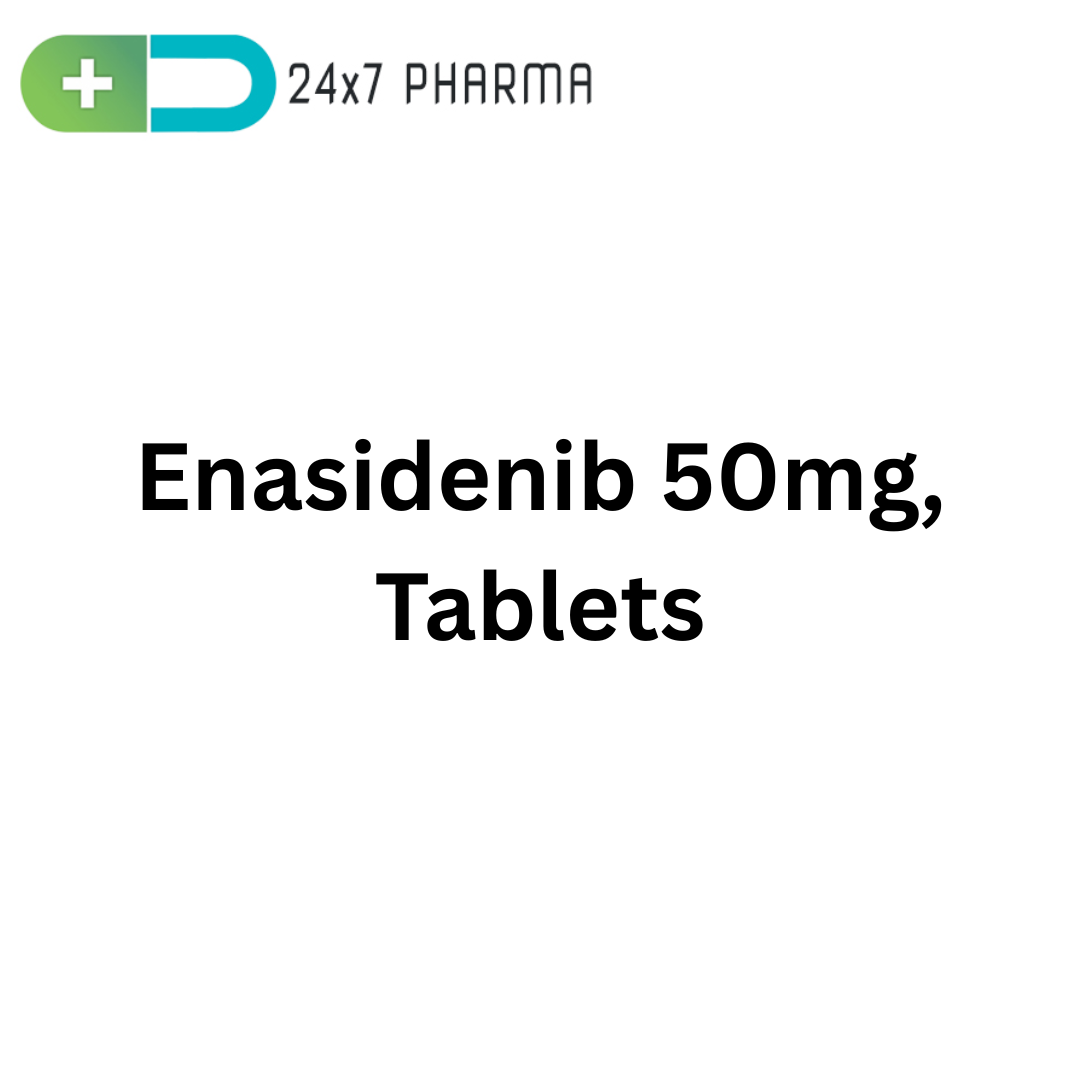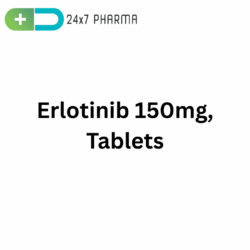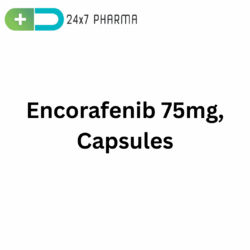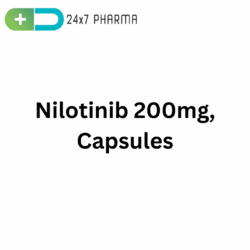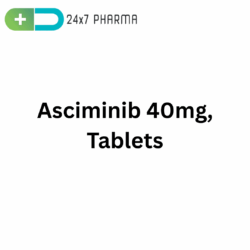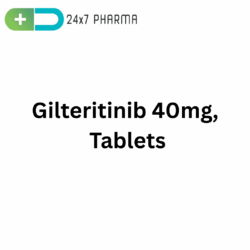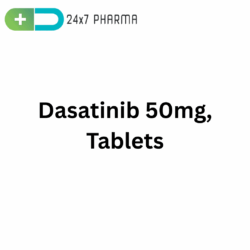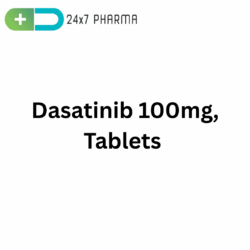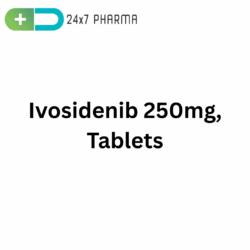Luciena 50mg, Enasidinib Tablets
Luciena 50mg contains Enasidenib, a targeted cancer therapy used in the treatment of certain types of leukemia. Developed as part of the growing class of IDH inhibitors, Luciena provides a precision approach to cancer therapy by specifically targeting mutated isocitrate dehydrogenase-2 (IDH2) enzymes found in some leukemia patients. It offers hope especially for those with relapsed or refractory acute myeloid leukemia (AML) harboring the IDH2 mutation.
What is Luciena 50mg (Enasidenib)?
Enasidenib is an IDH2 (isocitrate dehydrogenase-2) inhibitor that is available as the prescription oral tablet form Luciena. It is indicated specifically for adult AML patients with a confirmed IDH2 mutation, as identified through FDA-approved diagnostic tests. Luciena is part of a class of medications known as small molecule targeted therapies, which aim to block the abnormal metabolic pathways responsible for cancer cell survival and proliferation.
How It Works / Mechanism of Action
In patients with an IDH2 gene mutation, the enzyme isocitrate dehydrogenase 2 becomes altered and begins to produce an oncometabolite called 2-hydroxyglutarate (2-HG). This metabolite interferes with normal cellular differentiation and promotes the survival of leukemic cells.
By specifically blocking the mutant IDH2 enzyme, enasidenib lowers the amount of 2-HG produced. This restores normal cell differentiation, allowing immature leukemic blasts to mature into normal blood cells, thus reducing the leukemic burden. Unlike traditional chemotherapy that kills rapidly dividing cells indiscriminately, Enasidenib allows the malignant cells to mature and die naturally, reducing side effects and improving tolerability.
How to Use / Indications
Luciena 50mg is indicated for:
- IDH2 mutations in adult patients with recurrent or refractory AML.
- Before initiating treatment, IDH2 mutation testing must be performed using an FDA-approved diagnostic tool to confirm the presence of the mutation.
- It is not recommended for patients without this specific mutation, as the therapy will not be effective.
How to Take / Dosage
- Standard Dosage: The typical starting dose of Luciena is 100 mg taken orally once daily (usually two 50mg tablets).
- With or without food, it should be taken at the same time every day.
- Do not chew, split, or crush the tablet; instead, swallow it whole.
- Typically, treatment is continued until the condition worsens or the toxicity becomes intolerable.
Other Dosage Information
Dose Modifications: Based on tolerance and side effects, dose adjustments may be required.
Interrupt or reduce dose in cases of:
- Grade 3 or higher toxicities
- Differentiation syndrome
- Severe hyperbilirubinemia
- missing Dose: You should take the missing dose as soon as you can on the same day. Never take more medication to make up for a missing dosage.
Side Effects
Luciena 50mg can cause a range of side effects, some mild and others potentially serious.
Common Side Effects:
- Nausea
- Vomiting
- Diarrhea
- Decreased appetite
- Jaundice (yellowing of skin/eyes)
- Increased bilirubin levels
Serious Side Effects:
- Differentiation Syndrome: A potentially life-threatening condition presenting with fever, cough, shortness of breath, low blood pressure, and rapid weight gain. It requires immediate corticosteroid treatment and possibly interruption of Enasidenib.
- Tumor Lysis Syndrome (TLS): A rapid release of cancer cell contents into the bloodstream, leading to metabolic disturbances.
- Leukocytosis: An increase in white blood cell count which may require intervention.
Storage
- Store Luciena 50mg at room temperature between 20°C to 25°C (68°F to 77°F).
- Protect from moisture and heat.
- Keep in the original container, tightly closed.
- Keep out of reach of children and pets.
- Do not use expired medication; dispose of properly as advised by a pharmacist.
Benefits
- Targeted Action: Works specifically on IDH2-mutant AML, minimizing effects on normal cells.
- Improved Differentiation: Promotes maturation of abnormal blood cells into healthy ones.
- Oral Administration: Convenient pill-based regimen versus intravenous chemotherapy.
- Alternative for Relapsed AML: Offers a new treatment pathway for patients unresponsive to standard chemotherapy.
Prescription
- Luciena (Enasidenib) is a prescription-only medicine and must be prescribed by an oncologist or hematologist. Use should be strictly monitored with regular blood tests, liver function monitoring, and clinical evaluation.
- Genetic Testing Required: Only to be prescribed after confirmation of IDH2 mutation.
- Monitoring: Frequent CBCs (complete blood counts), bilirubin levels, and symptom monitoring during the first 3 months.
Drug Interactions
- Enasidenib may interact with:CYP enzyme inducers/inhibitors: It is metabolized via CYP enzymes; drugs affecting these may alter its blood levels.
- Antifungals (like ketoconazole) or anticonvulsants (like phenytoin) may increase/decrease drug effect.
- Warfarin: Monitor INR closely if co-administered.
- Herbal supplements: Especially St. John’s Wort, which may reduce effectiveness.
FAQs
How long does it take for Luciena to work?
It may take 1 to 2 months to see blood improvement, but some responses can occur later.
What if I develop side effects like jaundice?
Notify your doctor immediately. It could be a sign of elevated bilirubin or liver dysfunction, which may require dose adjustment or temporary discontinuation.
Can Luciena cure AML?
Luciena is not a cure, but it can offer prolonged remission and disease control, especially in relapsed/refractory AML.
Is Luciena chemotherapy?
No. It is a targeted therapy, not traditional cytotoxic chemotherapy.
Conclusion
An important development in the management of relapsed or refractory IDH2-mutated AML is Luciena 50mg (Enasidenib). With its targeted mechanism, oral administration, and promising clinical outcomes, it provides a valuable therapeutic option for patients with limited alternatives. However, like all medications, Luciena requires careful monitoring, patient selection, and adherence to safety guidelines to maximize benefit and minimize risks.
As precision oncology continues to evolve, agents like Luciena highlight the shift towards personalized cancer treatment, where therapy is tailored to individual genetic profiles for optimal outcomes.

